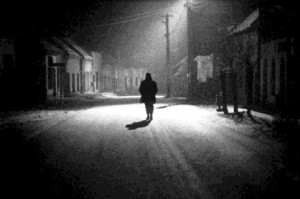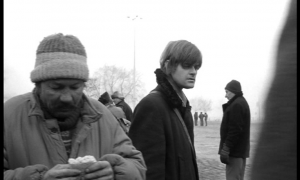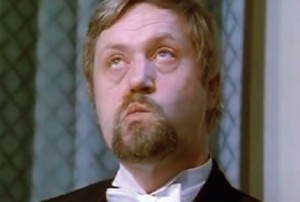
The following is a chapter from my book Film: The Front Line 1983 (Denver, CO: Arden Press, 1983), a volume commissioned as the first in a projected annual series that would survey recent independent and experimental filmmaking. (A second volume, Film: The Front Line 1984, by David Ehrenstein, appeared the following year, but lamentably the series never continued after that, for a variety of reasons, even though both volumes remain in print.) I have followed the format used in both books.
It’s worth adding that De Landa abandoned filmmaking not long after this article appeared –- after planning, as I recall (but not shooting), a film starring his penis, to be entitled My Dick — and went on to pursue a distinguished academic career as a professor of art, architecture, and philosophy in New York, Pennsylvania, and Switzerland, with at least four books to his credit: War in the Age of Intelligent Machines (1991), A Thousand Years of Nonlinear History (1997), Intensive Science and Virtual Philosophy (2002), and A New Philosophy of Society (2006). For this reason, I couldn’t originally illustrate this piece with any images from his films, as I did in Film: The Front Line 1983, until some frame enlargements were recently made from Incontinence,a month after this article was originally posted, by Georg Wasner of the Austrian Film Museum, to use in a catalogue for a retrospective that I programmed (see below).Most Read more
From the Chicago Reader (October 1, 2000). — J. R.


A chilling, mesmerizing, intense account of ethnic cleansing (in spirit if not in letter) from Hungarian master Bela Tarr (2000, 145 min.), set in virtually the same overcast, rural black-and-white world as his Damnation and Satantango (both also cowritten by Laszlo Krasznahorkai). As in Satantango, Krasznahorkai worked with Tarr in adapting his own novel — in this case the first to be translated into English, The Melancholy of Resistance, elaborately restructured here in terms of narrative sequence and viewpoint so that it’s mainly limited to the experience of a simpleminded messenger and artist figure. A decrepit circus (actually a huge truck) in an impoverished town displays the stuffed body of the largest whale in the world while spreading rumors about but failing to deliver a foreign prince. Eventually the unemployed male locals head for the local hospital like a lynch mob and proceed to devastate the premises. Krasznahorkai’s parallels with southern gothic fiction are as striking as those with other eastern European allegories, yielding cadenced prose as monotonously grim as Thomas Bernhard’s. The long takes following characters — the structural equivalent of the novel’s Faulknerian sentences, though the content recalls Beckett’s comedy of inertia — underline our easy complicity with these monsters, and the actors, including Hanna Schygulla in a welcome comeback, are riveting. Read more
From the Chicago Reader (December 20, 2002). And highly recommended reading: Giles Harvey’s excellent long review of Pawlikowski’s Cold War in the January 2019 issue of Harper’s. — J.R.

Pawel Pawlikowski (Last Resort) is clearly a filmmaker to watch, and he’ll appear at the festival to discuss these four English TV documentaries. From Moscow to Pietushki (1990, 45 min.), a portrait of writer Venedikt Yerofeyev, samples his work (especially the eponymous novel) in voice-over by Bernard Hill and shows how and why Yerefeyev became the patron saint of Russian alcoholics during the end of the Khrushchev era. A survivor of throat cancer, Yerefeyev needs mechanical assistance to speak, but his dry gallows humor survives intact. The hilarious Dostoevsky’s Travels (1991, 45 min.) trails the novelist’s great-grandson Dmitri, a tram driver from Saint Petersburg, as he travels around Germany hoping to find a Mercedes he can afford. He can’t speak or understand much German, and the people he encounters, though mostly friendly, seem as clueless about his ancestor as he is. (Explains one speaker at a meeting of the Dostoyevsky Society, Most people here are only familiar with Dostoyevsky through the film Anna Karenina.) Tripping With Zhirinovsky (1995, 40 min.) Read more




